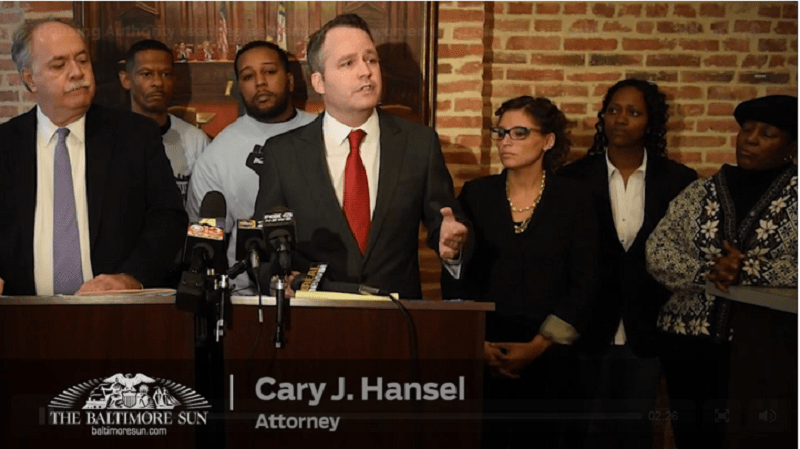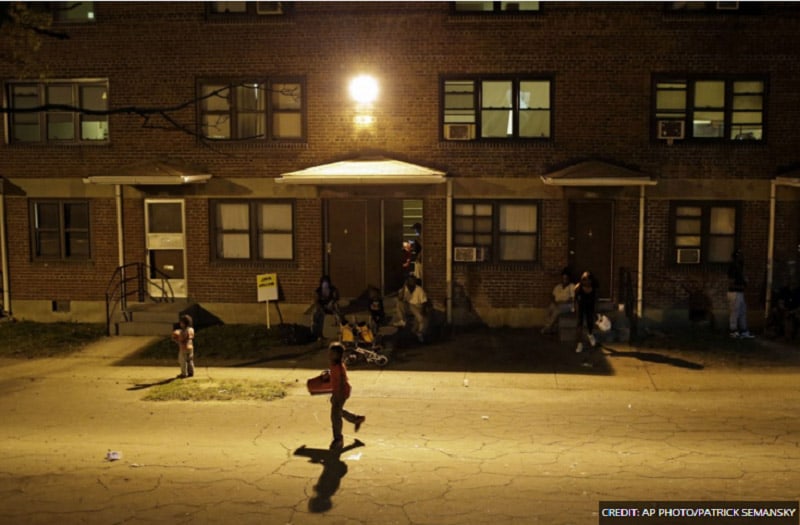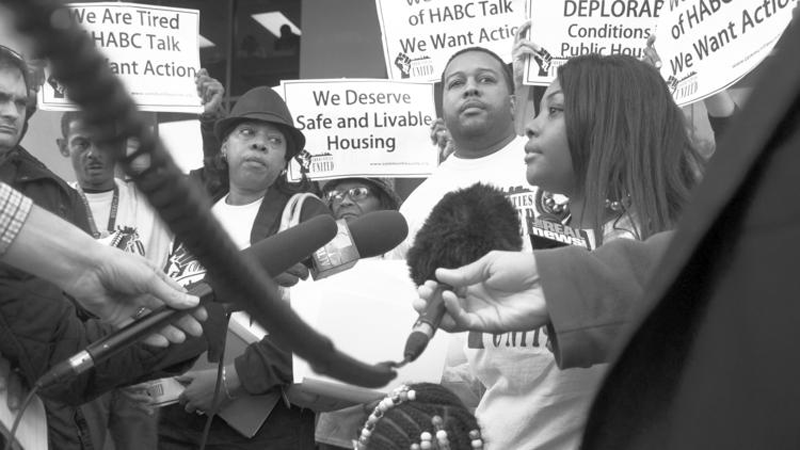
Tenants to Share Up to $8 Million in Settlement of Sex-for-Repairs Lawsuit
BALTIMORE – Public housing tenants in Baltimore who alleged they were sexually harassed and abused by maintenance workers will share up to $8 million in a settlement of a class-action lawsuit that exposed poor living conditions in the subsidized complexes.
City Housing Commissioner Paul T. Graziano pledged sweeping changes Friday to ensure that all residents can live in “peace and dignity” without being subjected to “the atrocious behavior of a small group of people who inflicted indignity of an indescribable nature.”
“Mistakes have been made here, and some of them very serious,” Graziano said at a news conference. He said he has instituted new precedures to guarantee that future cases are fully investigated and employees receive ongoing sexual harassment training. In addition, a new computerized system will allow tenants to request repairs without going through housing authority staff.
The lawsuit, filed in September, said maintenance workers at several complexes demanded sexual favors in exchange for making repairs. When the women did not comply, they said, the repairs were not made — exposing them to unsafe conditions such as mold, lack of heat and risk of electrocution.
Graziano, who has run the city’s housing authority for 15 years, did not offer an explanation for the alleged abuse and harassment. He said only that the agency took the strongest possible disciplinary action against the employees involved. A lawyer for the plaintiffs said all of the workers in question have been fired.
The settlement, which officials called the largest in a sexual harassment case under the Fair Housing Act, will be paid in large part from the housing authority’s reserve account, which is funded with about $50 million in federal dollars. A portion, $850,000, will be paid by the housing authority’s insurance plan.
Housing officials said the payment will not affect the agency’s ability to provide services. Taking the money from reserves is “not ideal,” but the agency will be left with a “tolerable” balance, according to a spokeswoman. Graziano stressed that no city money was involved.
Cary J. Hansel, an attorney for the 19 women who brought the suit, said the case sends a message that “positive change” in the public housing system is possible.
“The strength of this case was the strength of the women,” he said. “You can’t meet one of these women, know what they went through and not immediately understand that major changes had to be made.”
The agreement must still be approved by the U.S. District Court and the U.S. Department Housing and Urban Development. Both Graziano and Hansel said they anticipate approvals. Once that happens, officials said, any public housing tenants who were sexually abused or harassed will have 60 days to apply to join the case.
To spread the word, letters will be sent to those potentially affected, news media will be alerted and the housing authority will take out advertisements about the application process.
Tenants and former residents who were harassed over the last three years or whose homes were left in disrepair because of prior harassment could qualify to join the suit. Claims are limited because of a three-year statute of limitations.
The money is expected to be distributed within six months. A third-party administrator will be named to receive and evaluate claims.
The parties did not provide a copy of the settlement agreement.
A spokeswoman for HUD declined to comment on the agreement Friday, saying the federal agency does not discuss pending litigation.
Two of the plaintiffs spoke out Friday.
Lynnette Cooper, 51, said she is relieved.
“My life has changed. I’m not being harassed anymore,” Cooper said.
She said a maintenance worker at Govans Manor made repeated unwanted sexual advances and touched her inappropriately. Cooper said in an affidavit that she believes the man broke into her home, stole several items and rummaged through her belongings.
A criminal case that Cooper filed against the man was dropped.
Another plaintiff, Sara Garret, said she was happy with the resolution. She lived in Gilmor Homes with her four children and said two workers harassed her over the course of several years. Because of the lack of repairs, she lived with electrical sockets that hung by exposed wires, a broken stove and faulty windows, according to court records.
“I just cannot wait for my journey. Thank God,” Garret said.
Cooper, Garret and the other 17 original plaintiffs have been given Section 8 vouchers to move.
Other tenants who sign on to the case will be able to split the settlement but will not be given vouchers to relocate. Hansel said that is because the names of future complainants will not be disclosed publicly, as the original plaintiffs’ identities were.
The amount of money paid to Hansel and his co-counsel, Annie B. Hirsch, will be determined by the court.
Hansel and Hirsch said before they agreed to discuss settling the case, they insisted Graziano personally meet with the plaintiffs and tour their units. Conditions of the settlement included firing the alleged abusers, creating 50 more maintenance positions and coming up with a plan to make repairs to the subsidized complexes throughout the city.
Graziano said it was not clear how widespread the problems in Baltimore might be. He called Gilmor Homes in West Baltimore the “epicenter” of the problem.
“I hope this process increases the awareness of everybody — employees, residents, the general public — that this sort of behavior will not be tolerated, and that residents understand their rights,” Graziano said.
The settlement amount is on par with previous sexual harassment cases under the Fair Housing Act, but given the large number of potential victims, Hansel said it will be the largest such payout in history.
A public housing agency in North Carolina agreed in July to pay $2.7 million to settle a sexual harassment lawsuit that was brought by the U.S. Department of Justice and private plaintiffs. They sued Southeastern Community and Family Services Inc., the agency that administered the Section 8 voucher program in Scotland County, N.C. The suit alleged the housing coordinator and inspector sexually harassed female voucher program participants and applicants.
HUD, the federal agency the administers the public housing and Section 8 programs across the country, announced new proposed rules in October designed to protect people in government-sponsored housing from various forms of harassment, including sexual.
About 1,600 such complaints have been filed against federally subsidized housing providers in 2015, according to data provided by the agency. Sexual harassment claims are the most common of all harassment complaints.
The longtime commissioner has weathered recent calls that he resign or be fired by Mayor Stephanie Rawlings-Blake. Graziano said Friday that he has worked hard to protect the interests of Baltimore’s public housing residents.
“I guess I could have walked away and let someone else deal with it,” he said. “I felt the best solution was for me personally to commit to our residents that we would fix this, and that’s what we’re doing.”
Rawlings-Blake said the fact that the housing authority reached a settlement with the plaintiffs demonstrates how seriously Graziano took the allegations. She also said the process will create a better system for residents.
Perry Hopkins, an organizer with the advocacy group Maryland Communities United, called the settlement “a great start” to making the improvements Graziano promised for public housing tenants. The group helped organize the women to come forward.
“It sounds good — get it done,” he said.
Source:Baltimore Sun Article (WMAR), January 8th, 2016 (published)



